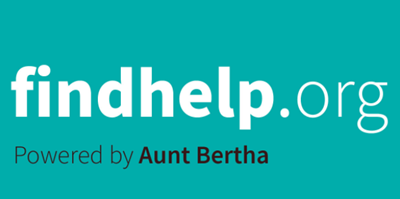Practice News
July 31, 2024
Before leaving your child with a babysitter be sure they have the following information:
July 31, 2024
Whenever you are concerned, have questions or your child has any of these symptoms.
By Graham Daugherty
•
March 20, 2024
Hello, parents, caregivers, and all those invested in the well-being of our little ones! We are thrilled to provide Practice News on our website. We understand the unique joys and challenges that come with raising healthy, happy kids. Through our news section, we aim to provide valuable insights, practical tips, and advice to empower parents in making informed decisions about their children's health and well-being. With years of experience in pediatric medicine and a dedication to promoting child wellness, we are here to guide you through every stage of your child's development.
October 1, 2019
Dating is an important part of growth and development for teenagers. It molds emotional health, identity and self-worth and helps to prepare a teen for future relationships. Healthy relationships can have a positive impact on development and unhealthy relationships can negatively impact a teen’s entire future. Learning to communicate effectively, appropriately managing uncomfortable feelings, such as jealously or anger, and treating others with respect are learned tools of healthy relationships. Dating violence is a widespread problem crossing the boundaries of age, gender, ethnicity and financial status. Research indicates one of 3 teens experiences dating violence and two of every three victims tell no one it has occurred. Many fail to report abuse due to embarrassment, fear, and the notion that the violence will never occur again. Dating violence has long-term and short-term effects on its victims. Knowing what to look for and early intervention can help safeguard your teen.
September 5, 2019
We have all passed that adorable child in the park or the mall that refuses to acknowledge our friendly banter or smile. That is a child that likely has been educated to avoid contact with strangers, as a way to protect the child. Parents naturally want their children to feel safe, secure, and valued and part of a parent’s responsibility is to teach them the skills which will keep them safe from harm. Most importantly, your home must be a place of trust and support by your taking an active interest in your children’s day-to-day lives and listening to them intently. Building a child’s confidence and self-esteem will equip him with the ability to assert himself in potentially any dangerous situation, rather than simply identifying strangers to avoid. Statistics repeatedly point out that most perpetrators are known to the child or family. Identifying a bad guy will not be a particularly helpful skill.
July 15, 2019
In the human body, one can find more than 500 types and more than 100 trillion bacteria living throughout the digestive, urinary and genital systems. The predominant bacteria are considered “friendly” and necessary to maintain good health. Friendly bacteria aid in breaking down food, absorbing nutrients, and fighting off harmful overgrowth of “unfriendly” bacteria. Maintaining a balance is essential to good health but the typical American diet includes many processed foods, resulting in the intake of fewer natural probiotics. Probiotics have been commonly used in other developed countries for decades – added to beverages, foods and through supplements – and now the US seems to be catching on.
June 26, 2019
Last month, the benefits and necessity of macro-minerals were discussed at length. To review, minerals are necessary for the production of vitamins, enzymes and hormones; the maintenance of healthy blood circulation; efficient nerve conduction; muscle growth and contraction; and for the metabolic processes that turn the food we eat into energy. Macro-minerals are necessary in larger amounts and include calcium, iron, magnesium phosphorus, and zinc. Micro-minerals, also called trace minerals, are needed in much smaller amounts but are still very necessary for good health. Micro-minerals include manganese, copper, iodine, cobalt, fluoride, and selenium.
June 19, 2019
Several years ago, when it was recommended to wait until two years of age to introduce peanuts, I reviewed the guidelines with a mother who was eager to give her two-year old son a peanut butter and jelly sandwich. As this is her favorite food, she made a big event out the situation – checkered tablecloths, fancy napkins and cutting off the crusts. The first bite made John smile and the second bite made him vomit twice (including two doses of antihistamine), turn blue, start with heavily labored breathing, and finally, left him on the floor unconscious. All of this occurred within 8 minutes of his first ingestion of peanut butter. After a panicked call to me, I told his mother to hang up and dial 911. EMS arrived quickly, gave him epinephrine and breathing treatments, and transported him to the hospital, where he stayed for awhile. This mother still tells me it was the worst day of her life. She was frightened by what occurred and felt utterly helpless watching her child nearly pass away before her.
June 16, 2019
Summers bring water parks and beach trips, picnics and barbecues, and hopefully, rest and relaxation. For children, it can also bring the “summer slide.” This is name given to the period of time that little brains sit idle in the summer. According to the National Summer Learning Association, “A conservative estimate of lost instructional time is approximately two months of the school year…It’s common for teachers to spend a least a month re-teaching” the forgotten material at the start of the next school year. Families are children’s most important teachers and there are some great ways to keep your children reading, and thus retaining, during the summer.

